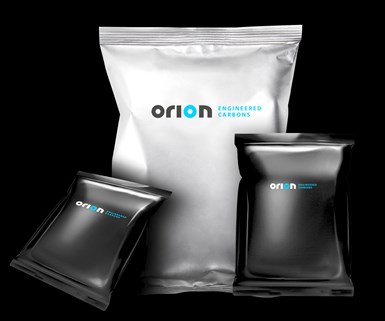Minibags Ensure Dust-Free Handling of Orion's Carbon Black Materials
Orion Engineered Carbons S.A. has introduced a packaging system with soluble and meltable Minibags for dust-free and sustainable handling of carbon black.

Orion Engineered Carbons S.A., a supplier of specialty and high-performance carbon black, has introduced a packaging system with soluble and meltable Minibags for dust-free and sustainable handling. Minibags are available for different material types, melting points and capacities. They have been designed to optimize the production process and serve small order quantities ranging from 100 g to 10 kg. Minibags are suitable for both powder and beaded carbon blacks.
Carbon Black is a dusty and fluffy substance often presenting handling and packaging challenges, the company says. Minibags are said to mitigate these challenges by allowing for direct incorporation into the production process without the need to open the bags. Depending on the material, Minibags are either water-soluble or meltable in polymers, thus reducing waste and enabling the dust-free processing of carbon black. All common polyethylene and other compatible elastomer bases as well as ethylene vinyl acetate or polyvinyl alcohol are offered as Minibag material.
Orion Engineered Carbons also offers small aluminum bags, in such cases where moisture protection is more important.
Related Content
-
Hexavalent to trivalent chromium — the environmental benefits
Regulatory pressures to switch from hexavalent chromium to trivalent alternatives are a growing concern for many finishing operations. In this Products Finishing Ask the Expert clinic, Brittany McKinney of Pavco discusses the environmental considerations driving these regulations.
-
How to Maximize Nickel Plating Performance
The advantages of boric acid-free nickel plating include allowing manufacturers who utilize nickel plating to keep up the ever-changing regulatory policies and support sustainability efforts.
-
Chromium Free Etching for Plating on Plastics
MacDermid Enthone Industrial Solutions promotes Evolve as first production-proven chromium-free etching process for plating on plastics.







.jpg;maxWidth=300;quality=90)




